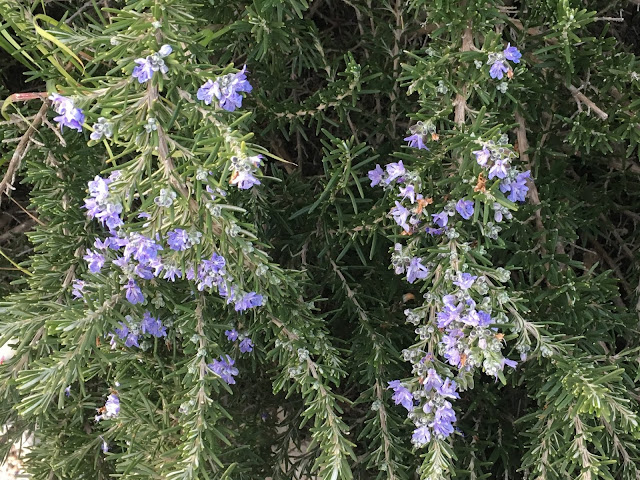Because we don't have a car here in Jerusalem, we are normally limited in where we can easily walk or take public transportation to for an excursion. One afternoon the end of January, our friend Roger asked us if we'd like to accompany him to the Jerusalem hills west of the city for a hike. We gladly joined him in a visit to the hiking trails around Sataf. Sataf was a Palestinian village before its inhabitants were forced to abandon it during the 1948 Arab-Israeli war. Today, it's a park and has a many hiking trails which you can see on the map below. Located 10 km west of Jerusalem, it's on a hillside across the valley from the Monastery of Saint John in the Wilderness.

We began our hike at the top of the hill and followed trails down to the site of the village itself. The village site has spectacular views over the valley, and has many terraced gardens, vineyards, and orchards which are watered by the two springs which flow from the site down to the riverbed below. There is evidence dating back to the Chalcolithic period (4000 B.C.E.) of residences and agriculture at Sataf. This agricultural evidence makes it some of the oldest in the region. Today, the site is also used to showcase the ancient agricultural practices for tourists.
The village ruins from above.
This was the last day of January, and Spring was evident in blossoming trees and wild flowers. Wild rosemary were everywhere.
Almond trees were in full bloom. It was my first time to see them flowering.
Cyclamen
Wild anemones
I'm not sure what this is, but it was pretty. Coming from Michigan, I was thrilled to see Spring flowers in the end of January, believe me.
This is the remains of a watch tower for guarding the orchards.
The two springs still run into the reservoir which is used to water the crops on the terraces.
The village must have been very beautiful when people lived there.
Look at the magnificent view this house had.
Another stunning location.
If the stones could talk, I think they'd have some amazing stories to tell of both happiness and pain experienced over time in this and the over 400 other Palestinian villages "depopulated" in the wake of the 1948 war. I wish all humanity peace, salam, and shalom.




























No comments:
Post a Comment